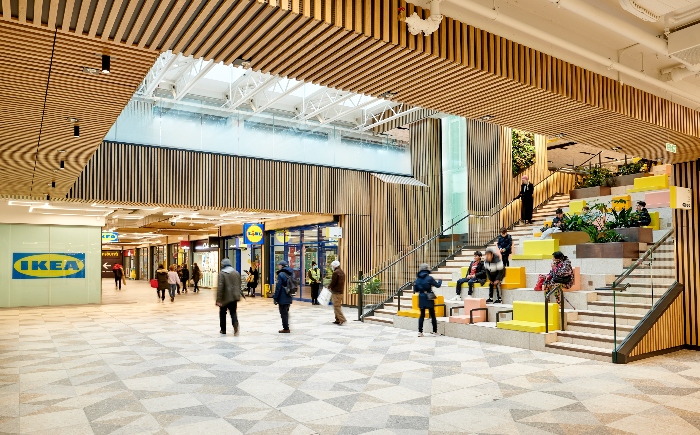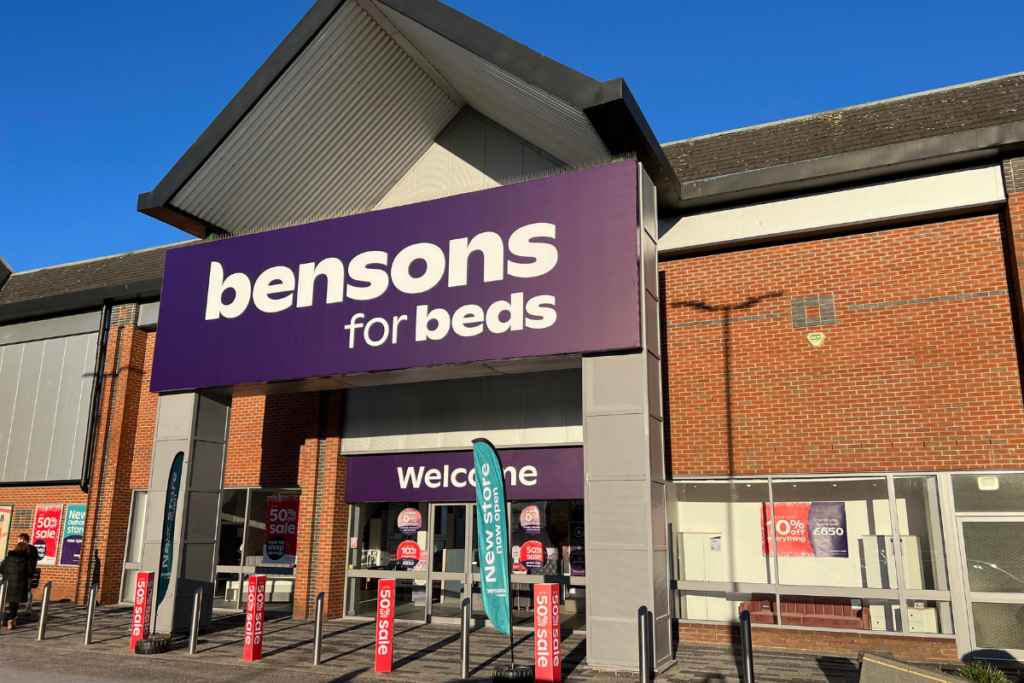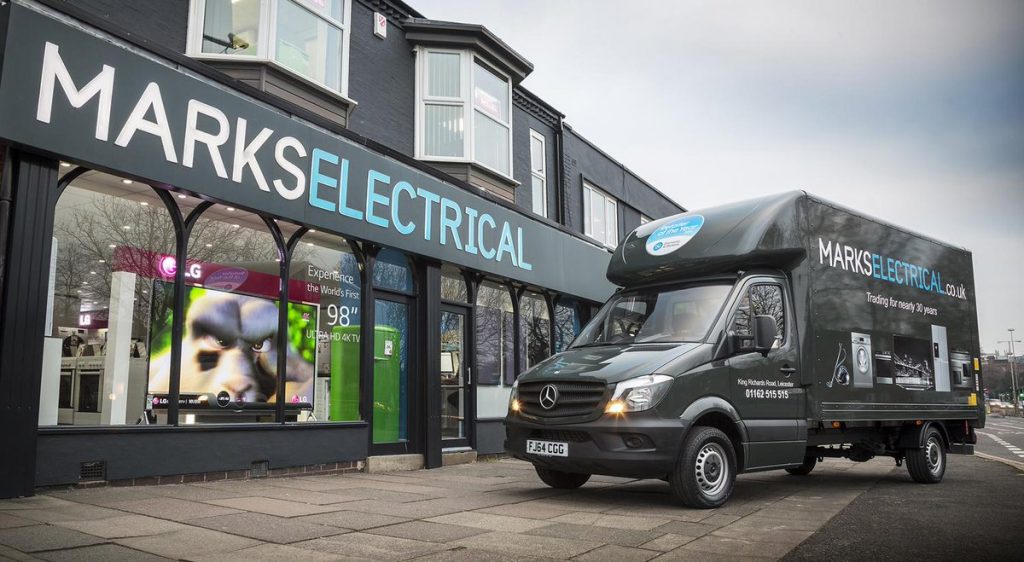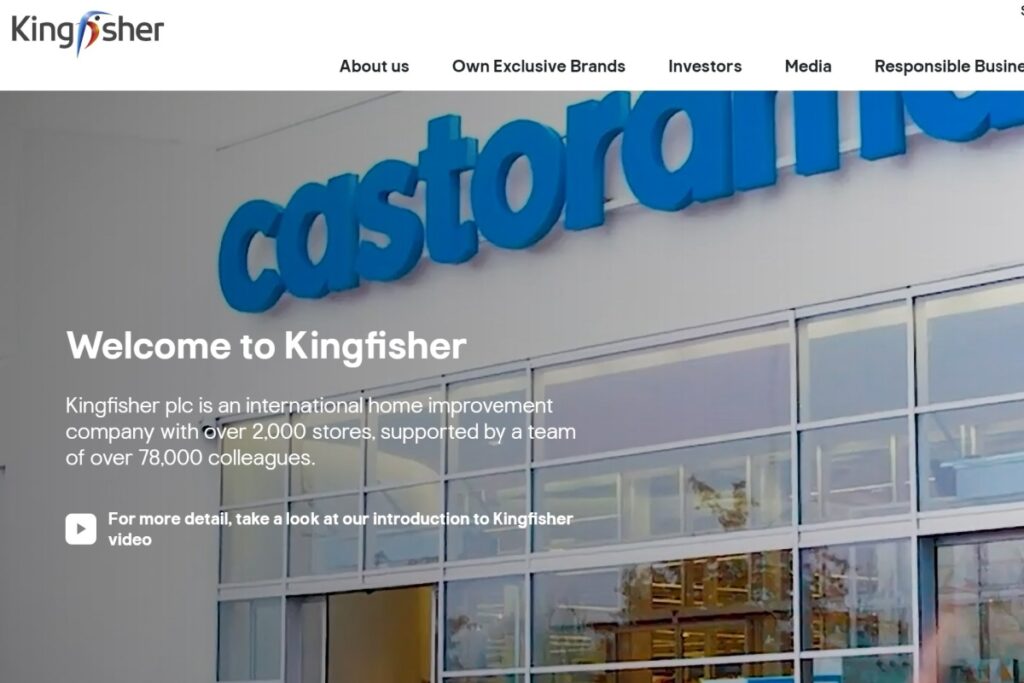Consumers have fallen out of love with the shopping centre.
Last year, it was the UK’s worst performing retail destination, with footfall plunging 37.9% on pre-pandemic levels, according to Springboard data.
However, Cindy Andersen, boss of Ikea’s property arm Ingka Centres, is set on reversing this trend with plans to reinvent the mall concept.
Named Livat – which means ‘lively gathering’ in Swedish – the mall is designed to be a place to meet rather than just somewhere to shop, which Andersen believes is integral for the longevity of the retail destination.
“Too many shopping centres have failed to adapt and are seen as somewhere to be visited only once a week. For the industry to survive, this needs to change,” she says.
“We are leading that change, creating places where people can work, shop, live and simply have fun.”
The UK’s first ‘meeting place’ mall
The £170 million Livat Hammersmith development has tranformed the former Kings Mall shopping centre, and includes a 49,000sq ft Ikea – the furniture retailer’s first small format, high street store in the UK.
Ingka Centres describes the new mall as a “vibrant community destination” and is a space designed for local residents and visitors to come together.
It includes a locally run cafe above the mall, which sits beside a revamped outdoor space for council tenants in the residential block above, with a wildflower meadow, seating and planters.

Alongside the new Ikea store, the meeting place offers a lively programme of events and pop-up outlets to provide the community with different ways to spend time together.
Livat offers a bookable ‘pay-by-the-hour’ retail space operated by Sook, giving the local community access to a variety of different businesses and an opportunity to set up shop themselves.
When Ingka Centres acquired the Kings Mall two years ago, over a quarter of stores in the run-down Hammersmith shopping centre were vacant.
Livat is now fully let, with new tenants including German discount supermarket Lidl, a Library of Things, and Sook.
“We know that our visitors and the wider community want more spaces in which to meet, shop, socialise and work which are fun, human and eco-friendly. Livat Hammersmith will offer just that,” Andersen says.
“This new vibrant offer provides places where everyone feels welcome and will be encouraged to come more often to explore amazing experiences while supporting the local community and the planet.”
Andersen tells Retail Gazette that there has been a “fantastic” response to Livat so far and emphasises that its meeting places are not just somewhere that people come to shop.
“They are enriching places where people build emotional connections, meeting their friends, relaxing, and dining,” she says.
Livat Hammersmith is not just Ingka’s first UK meeting place format, it is also its first urban location. It already has 47 other meeting places globally but this is the first that brings the offer into a city centre location.
“It is important to us, that despite its smaller scale, our first urban meeting place, Livat Hammersmith still reflects exactly what we stand for,” she says.

Andersen’s view on how to keep the shopping centre relevant is not formed from years in retail property, she approaches mall reinvention as a retailer.
She has spent a career working in retail, including over a decade at Ikea. In fact, when Ingka acquired the Hammersmith site in 2019, Anderson was leading kitchen, bathroom and appliances at the furniture giant.
She took over Ingka Centres just over 12 months ago when the world was more than a year into the Covid-19 pandemic, and insists that the health crisis has “reconfirmed that our meeting places are more relevant than ever”.
“Across our global meeting places, I have been humbled by how our communities have pulled together to overcome the challenges of the pandemic,” she says.
“As we look to the future, what is clear to us is that the desire to meet and connect in real life has never been stronger, and I am confident people are eager to embrace new experiences such as those on offer from today at Livat Hammersmith.”
Livat: A global success story
Livat is a format that is working around the world. Andersen explains that globally both visitor numbers and sales are growing across its centres as the world moves into recovery mode after the pandemic.
“We run 47 meeting places all around the world, from Europe to China, and they have seen a strong recovery in footfall as lockdown restrictions have lifted,” she says.
“Globally we have bounced back to 372 million visitations, with each visitor tending to spend more than last year.”
Over the festive period, footfall jumped 8.3% on 2019 figures.
Andersen says in China, which is further down the line in terms of Covid recovery, footfall at its meeting places climbed 23% last year.
She also says tenant occupancy also remains high and that occupier sales reached €6 billion across Europe, Russia and China in its last financial, up 16% year-on-year.
Ingka Centres is fast expanding its Livat format around the world and they are not just providing meeting places, but home offices.
At Livat in Changsha, China, Ingka Centres has built more than 500 ‘small home office’ flexible working units. The site also includes a gym, reception areas and 12,000 sq m of green space.

Transforming retail space into office space is an emerging trend in the sector. John Lewis is converting almost half of its Oxford Street flagship store on into office space, as it aims to boost profitability.
What next for Livat?
Ingka Centres had made meeting places a core part of its expansion strategy, which will likely mean more formats of this ilk in the UK.
Andersen says that the UK offers an array of opportunities for the group and it is “actively searching” for more urban sites to redevelop here, as well as in Europe and North America.
“We’re here to stay and we’re continuously looking at opportunities, mainly in city centre locations, across the country,” she says.
With online on the rise, shopping centres have to offer consumers more than just another way to buy products.
Andersen believes providing meeting places is enough to entice people out of their homes. With many shoppers finally able to leave their houses freely after two years of on-off restrictions, she might be just be right.
Click here to sign up to Retail Gazette‘s free daily email newsletter


















